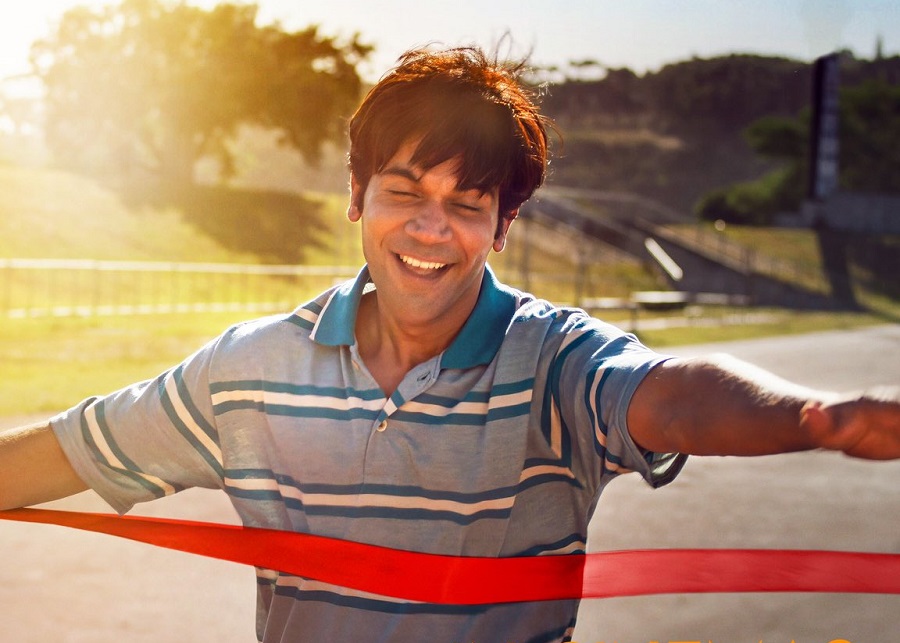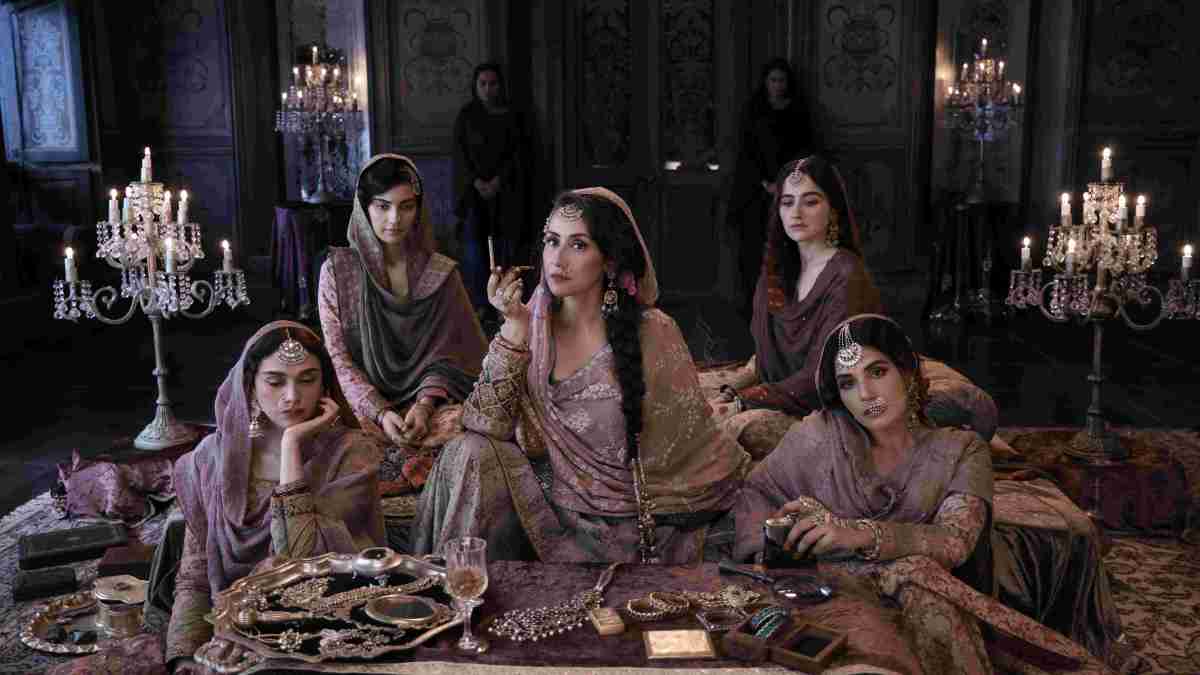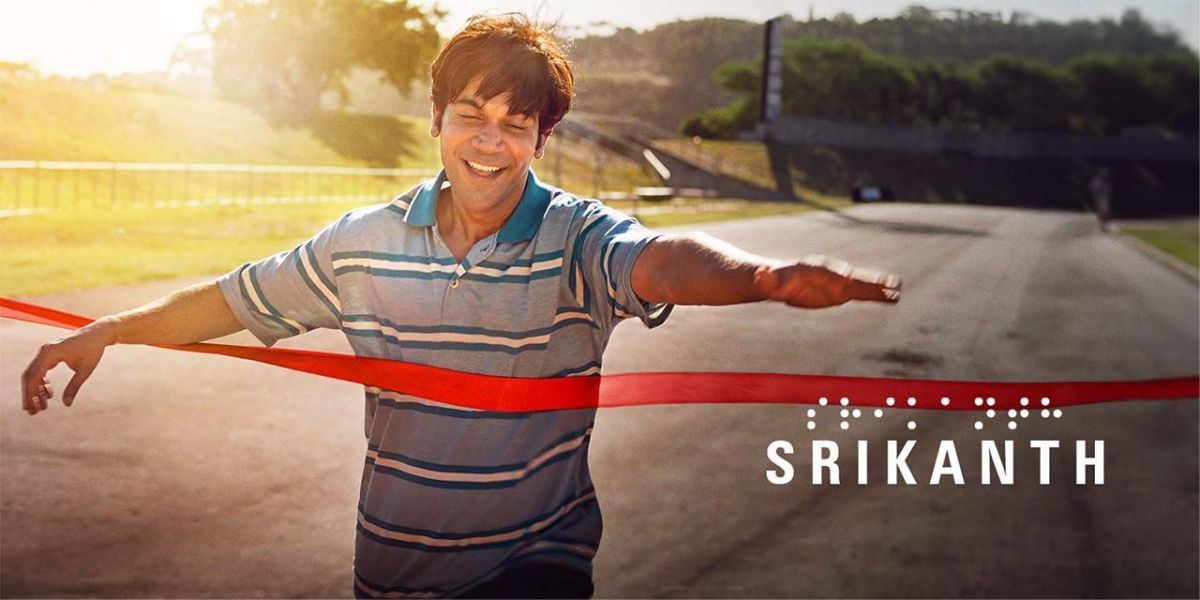Director Aditya Suhas Jambhale, producer Aditya Dhar weave in fine drama to tell the Article 370 and its abrogation story. The film, however, is likely to lead to polarised views.
Rating: ⭐️⭐️💫 (2.5 / 5)

By Mayur Lookhar
Just few days before its release, Article 370 [2024] finds a mention in Prime Minister Narendra Modi’s speech in Jammu & Kashmir. The PM launched a slew of development initiatives in the region.
Here is a man who never spoke a word on his biopic PM Narendra Modi (2019). Given the poor production values, it would never get the blessings of Modi. But here the PM merrily stated that he has heard about this upcoming film Article 370 that will inform people on the real insights pertaining to the now abrogated Article of the Indian Constitution. Devoid of stars, there is no way that producer Aditya Dhar, director Aditya Suhas Jambhale would have refused such a validation.
Modi’s fine words for the film, however, had critics up in arms calling it another propaganda film. Earlier, Aditya Dhar had strongly rebutted the propaganda talk. After watching the film, does one believe Dhar?
There is no straight answer. The film is likely to lead to polarised views. Where does your reviewer stand? Phew, Article 370 [2024] is a bit of mixed bag.
Dhar and Jambhale, the two Adityas have taken a tacit approach in dealing with the contentious subject. Whilst the disclaimer states that their film is inspired by true events, Article 370 [2024] isn’t a documentary. It naturally opens the door for creative liberty. More on it later, but firstly, what was Article 370?
In simple terms, Article 370 of the Indian Constitution was a Special Status given to the state of Jammu & Kashmir, which has long been a disputed region between India and Pakistan. The Special Status was given in a different time and era where India wasn’t the force that it is today. Thus the then Prime Minister Pandit Jawaharlal Nehru, N.Gopalswami Ayyangar, who drafted Article 370, can’t be eternally condemned for granting the Special Status. J&K wasn’t the lone such region to get a Special Status. Article 371H grants special provisions to the state of Arunachal Pradesh.
On 5 August, 2019, citing a presidential order, the Bharatiya Janata Party-led Central Government abrogated Article 370 paving the way for all provisions of Indian Constitution to be applied to the state.
The politically aware citizens must have learnt all about Article 370 in the numerous news debates that followed the events of 5 August, 2019.
Dhar and Jambhale give a brief history about Article 370, but then the film focuses on the struggles of Kashmiri girl Zooni Haqsar (Yami Gautam Dhar) in dealing with terror, security in the valley. The intelligence officer disobeys her superior in taking out the dreaded terrorist Burhan Wani. The social, political fallout of Wani’s killing sees Zooni being shunted out of Kashmir, and posted in Delhi, where she is tasked to escort visiting VIPs.
Her story reaches the corridors of Rajeshwari Swaminathan [Priyamani], Joint Secretary, PMO. Swaminathan offers her a shot at redemption, a chance to join the National Investigation Agency. Along the way, Zooni senses that there is bigger national interest ploy that will alter the politics of J&K completely.
Once Article 370 was rightfully abrogated, Jammu & Kashmir was heavily guarded, with internet lines being cut for weeks. What really transpired in J&K in the preceding days or after 5 August, 2019? Jambhale, Dhar’s Article 370, the film aims to give a semblance of the work that went behind in the abrogation of Article 370.
Though primarily a political responsibility, Jambhale and Dhar smartly choose to tell their story from the actions of the two footsoldiers. Swaminathan, charting the course from her desk, while Zooni does the ground work. Effectively, the duo is assigned the task to take care of external hindrances.
Presumably fiction, but banking on nari shakti (female power) in dealing with a critical crisis is a masterstroke by Jambhale and Aditya Dhar. Having a Kashmiri woman at the forefront builds national loyalty, and also assuage any fears of Article 370 being anti-minority. A Swaminathan and Zooni help Article 370 remain non-political in its narrative, at least in the first half. It also helps Dhar to shut the propaganda talk. If Modi and Home Minister Amit Shah are fine in letting the reel heroes outshine them, who are we to complain?
Jambhale’s film is fairly objective, but a political, constitutional move requires the telling contribution of the top political brass. Jambhale’s unnamed Indian PM (played by Arun Govil) is unassuming, but he can’t mask the crucial arguments laid by Home Minister Madhav [Kiran Karmarkar] in Parliament. (Karmarkar needed better prosthethic to resemble an Amit Shah). More than faces, the director would want the viewers to emphasize on the Constitutional arguments around Article 370. Hey, but the scenes are impossible without countering the opposition’s barb Thankfully, the leader of the opposition is no Gandhi, but a Thapar. There’s a Thapar in Parliament, whilst a Brinda (Iravati Harshe) is the prime time anchor of a nosy, perhaps Left-liberal news channel. These surely aren’t random names.
After remaining objective early, Article 370 is bound to elicit different views over its latter half. Credit must be given where it is due, but it’s easier said than done, especially in the particular context.
For all the hype, fears around abrogation of Article 370, many political leaders had claimed that not a single bullet was fired after scrapping Article 370. However, Jambhale’s film shows Zooni and CRPF men locked in a gun battle with a terrorist. A film needs climatic ‘action’.
The Bollywood film is relatively cautious in its criticism of mainstream oppostion leaders, but it doesn’t shy from questioning local Kashmiri political stalwarts. Of course, they have stayed cleared of the real names, but the Abdullahs, and Mehbooza Mufti won’t be pleased by Jalal (Raj Zutshi) and Parveena Andrabi (Divya Sheth), respectively. With Assembly Elections in J&K being a strong possibility this year, an Article 370 certainly doesn’t present the Kashmiri political stalwarts in great light. The makers though compel you to rethink your views on former J&K governor Jagmohan (Mohan Agashe).

Political views on the film will be divided, but not many will differ over the intense acts by Yami Gautam and Priyamani. The former has transformed herself as an actress since 2023. She might not speak enough Kashmiri words, but Gautam doles out another emotionally gripping performance. She has fun wielding guns too. The Zooni (family) backstory is a reminder of how ordinary Kashmiris were exploited by vested interests. If not for the personal loss, would a Zooni have turned out to be a patriot? Nevertheless, Gautam earns respect for another fine showing.

Priyamani is latching on to the opportunities that perhaps eluded her earlier. Rajeshwari Swaminathan can be unassuming, but beneath that calm exterior, lies a fierce, smart woman who knows how to operate in the world of politics. Priyamani effortlessly slips into her character and is flawless.
The picturesque locales, presumably Kashmir, has its natural appeal but Article 370 has impressive production design, cinematography, and effective background score. Aditya Dhar and his team have only carried on from Uri: The Surgical Strike [2019] experience.
The film simplifies the argument around Article 370, sends the appropriate message to the people of Kashmir. A Burhan Wani is rightly condemned, but Jambhale shows sensitivity in talking about the young stone pelters. The closing stills suggest of a new dawn in Kashmir. We can’t quite recall, but did the makers miss out on Burhan Wani’s father hosting the tri colour?
Article 370 has its flaws, but it sure is a better representation of contentious issues than preceding films. We’ve never ascribed to the word propaganda. This film isn’t one. However, if an Article 370 influences a J&K voter in any manner, then that ‘right’ intention will take a different meaning.

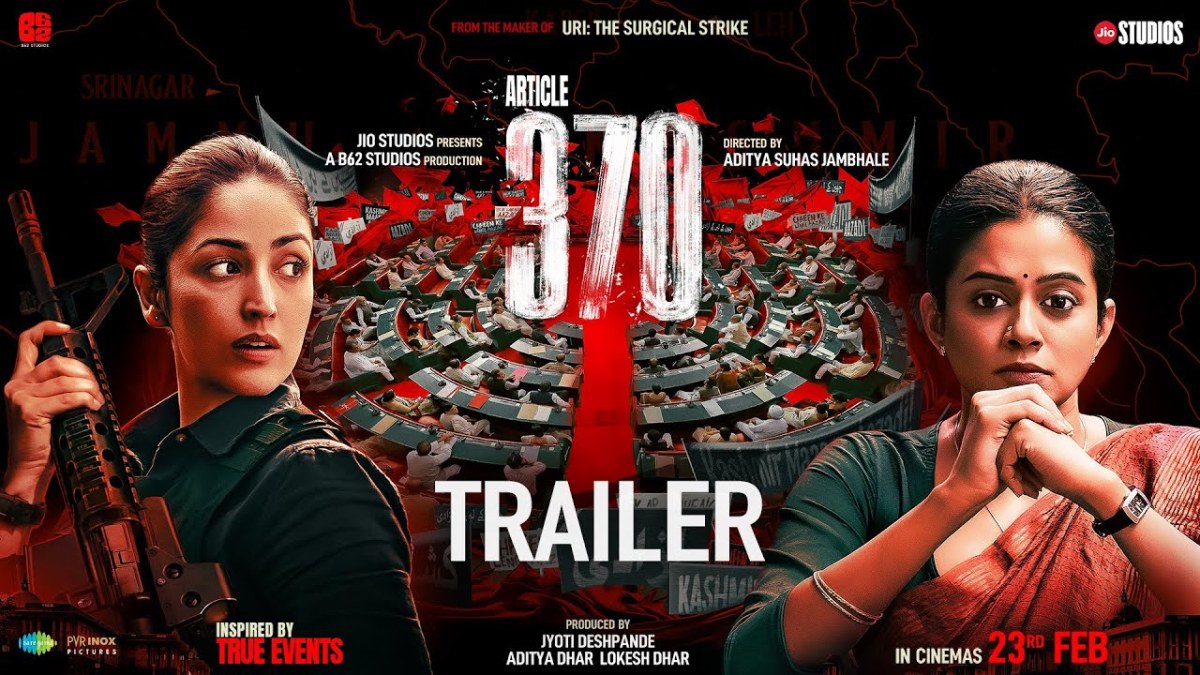

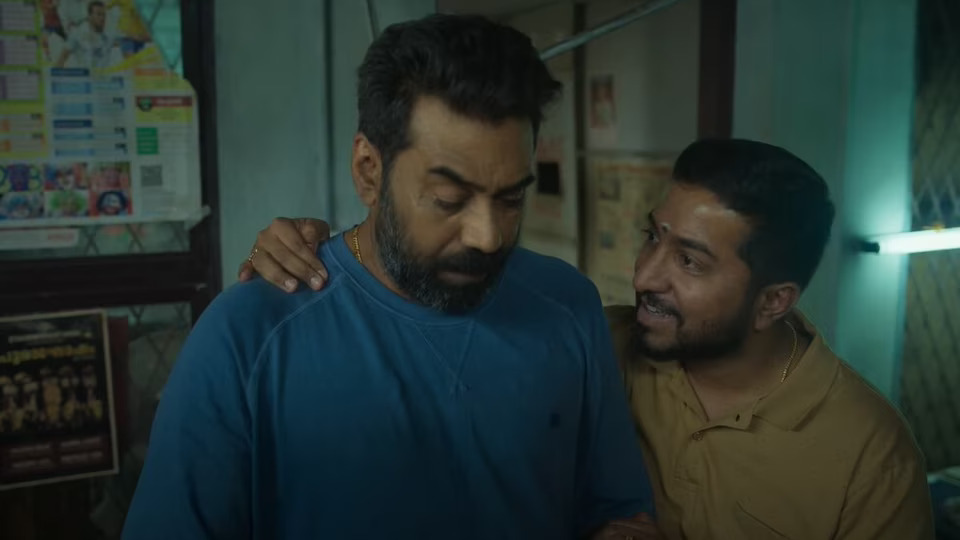
![New video of Bangtan Boys shows Jin rehearsing with a water bottle ahead of Coldplay concert; ARMY is missing him dearly [VIEW TWEETS]](https://st1.bollywoodlife.com/wp-content/uploads/2023/01/Jjin-600x315.png)


